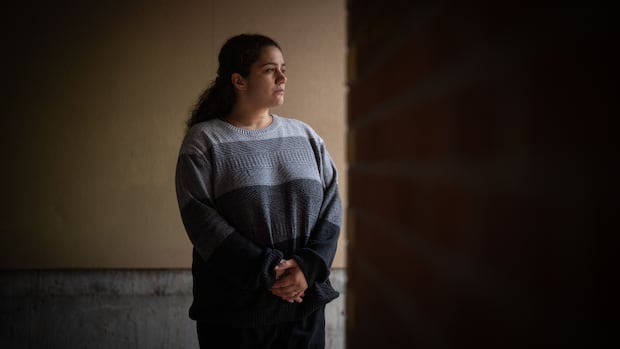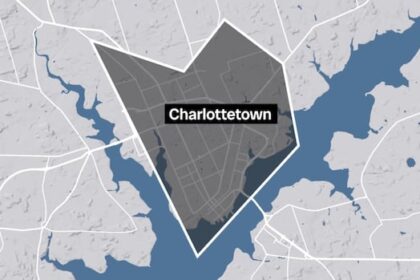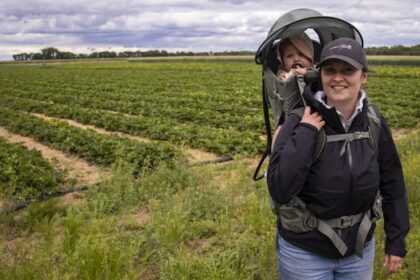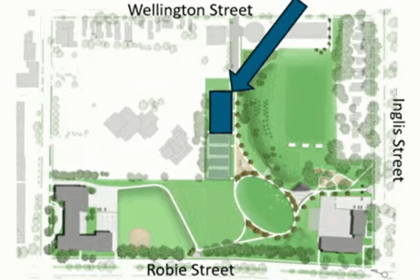British ColumbiaFertility clinics say they’re seeing delays in patients being approved for IVF funding due to the B.C. General Employees Union Strike. For patients who have rested their last hopes of conception on B.C.’s IVF funding program, this comes as a significant blow.About 250 applications for provincial funding are held up due to labour dispute, fertility clinic saysEmily Fagan · CBC News · Posted: Oct 22, 2025 10:00 AM EDT | Last Updated: 4 hours agoMishayla Vandenheuvel is frustrated by the delays and uncertainty in IVF funding for herself and others caused by the BCGEU strike . (Ben Nelms/CBC)When Mishayla Vandenheuvel heard that B.C. would fund up to $19,000 for a cycle of in-vitro fertilization (IVF) treatment, she felt like she won the lottery.Earlier this month, the Vancouver woman received an email from her clinic, Olive Fertility Centre, saying her turn to apply had come – but due to the B.C. General Employees’ Union (BCGEU) strike, she and other patients are not able to submit their applications. About 250 applications already submitted by the clinic are still being reviewed, though the process is facing delays, fertility clinics say.As the seven-week strike drags on, 38-year-old Vandenheuvel is unsure if any funding will be available for her this fall when she’s finally able to apply, as the approval of funding for applications currently under review will impact how much money is left for her application. Her doctor has told her if she has to wait until April to apply for the next round of funding, due to the funding for 2025 running out, it could mean her chances of successfully conceiving drop from 10 to 30 per cent to three per cent. For patients like Vandenheuvel, who have pinned their last hopes of conception on the program, this news comes as a significant blow.“I feel like my family and the people who are being affected by this are being held hostage by a war between the government and the unions,” she said.Vandenheuvel has long dreamed of having two children. She had four miscarriages before having a son, now four years old, and has faced six more miscarriages in the years since while trying to conceive.She joined the waitlist for the IVF funding program in December 2024, which began to fund treatment for patients this July. This funding is her only option left to help her conceive, she says, as she is low-income and cannot afford IVF without it. Now, the uncertainty about whether she will be able to access the program this year – or next year, when she may no longer be eligible due to low ovarian reserves – has her stressed and frustrated. “The biggest issue here is communication and transparency and the fact that there’s so many families right now that are waiting,” said Vandenheuvel.Mishayla Vandenheuvel is pictured near her home in Vancouver, B.C., on Monday, October. 20, 2025. (Ben Nelms/CBC)The current number of patients waiting for their opportunity to apply for the program through Olive Fertility Centre is about 2,500, according to Jason Hitkari, a doctor and fertility specialist at the clinic.In order to submit applications, Hitkari said, the clinic needs to know there’s enough funding allocated for it to apply for – which they only know when applications already under review are approved and given a specific amount of funding. For older patients, he said, any delay to accessing potential fertility treatment could pose challenges for conception.“Time is of the essence, and so any kind of delay is a little unfortunate,” said Hitkari.Hitkari said the new funding program has been an exciting opportunity for patients who have accessed it so far, and allowed people to undergo IVF who otherwise couldn’t afford it. Typically, he’s seen it take about 30 days for an application to be reviewed by the province, and then once approved it would take about a month before treatment could begin.“This fertility journey is tough on people,” said Hitkari. “I’ve had personal experience with it, so I know that it can be very frustrating and challenging and stressful, and as smooth a process as possible to get funds allocated to people [would be] ideal.”Pacific Centre for Reproductive Medicine, one of the two other clinics through which patients can apply for provincial IVF funding, said they’ve also seen delays in application approvals since the end of September. The other centre, Grace Fertility, did not respond to questions from CBC News.Mishayla Vandenheuvel is pictured near her home in Vancouver, B.C., on Oct. 20, 2025. (Ben Nelms/CBC)B.C. Health Minister Josie Osborne said her ministry is looking into the potential disruptions to the applications and IVF funding system due to the BCGEU strike.“It must be very stressful for someone who is already feeling anxious about their hope to give birth and to start a family to then face this potential delay,” she said. “My heart really goes out to them, because I imagine that must be very difficult at this time.” The Ministry of Health would not provide data on how many applications are currently awaiting approval, but said “for most applications we are within the 30-business day benchmark.” Paul Finch, president of the BCGEU, said in a statement that he is currently involved in discussions with the province and mediators aimed at resolving the contract dispute.“We deeply regret the impact this prolonged strike has had on our communities and are working hard with government to reach a deal at the mediation table,” he said.ABOUT THE AUTHOREmily Fagan is a journalist based in Victoria, B.C. She was previously a staff reporter for the Toronto Star. Her work has also appeared in publications including the Globe and Mail, Vice, and the Washington Post. You can send her tips at emily.fagan@cbc.ca.
B.C woman seeking IVF funding says she faces delays, uncertainty amid BCGEU strike











